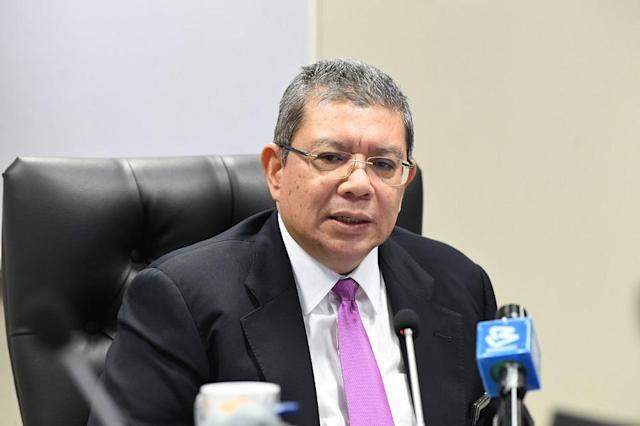NEW DELHI, June 20 (NNN-Bernama) — The crisis following last year’s coup in Myanmar is hampering the 10-member ASEAN’s trade talks with its economic partners, Malaysian Foreign Minister Saifuddin Abdullah said.
Myanmar has troubled ASEAN’s consensus-based decision-making process as potential agreements with the group’s negotiating partners can be obstructed in the absence of approval from any member state.
Saifuddin suggested that ASEAN will have to take into account whether only nine members should enter into negotiations and agreements.
“If there are trade agreements that ASEAN needs to sign with our partners, you cannot have Myanmar (holding) ASEAN to ransom. So we may have to think solidly whether this is something that we may have to do and what are the legal implications,” Saifuddin said.
“Just because one doesn’t want to sign, nine cannot sign, and we cannot enhance our trade with the EU and other dialogue partners. It is not fair to ASEAN,” told Bernama in an interview during his June 15-17 India visit to attend the ASEAN-India Foreign Ministers Meeting.
Saifuddin said Malaysia was dismayed at the lack of progress in achieving peace in Myanmar.
“People are still being killed, internally displaced persons do not get humanitarian assistance, and more people (refugees fleeing violence) keep coming to Malaysia,” he said.
There was no representative from Myanmar during the the Special ASEAN-India Foreign Ministers’ Meeting. The foreign ministers of Brunei, Cambodia, Indonesia, Malaysia, Singapore and Vietnam held an informal meeting on the sidelines on June 16.
“There was only one topic on the table and that was Myanmar. I highlighted the fact that we don’t see clear progress (towards resolving the Myanmar crisis),” Saifuddin told Bernama.
The Cambodian foreign minister, who is the bloc’s special envoy on Myanmar, will be travelling there for his second visit by the end of this month.
“We advised him that he should be meeting all stakeholders,” Saifuddin said, adding they must include the National Unity Government (NUG) and the National Unity Consultative Council (NUCC).
Opinion is divided within ASEAN about the level of representation to be allowed from the Myanmar administration at the group’s meetings.
“The current situation is that we are not inviting Myanmar to send political representation to the ASEAN leaders’ summit. But (about) other sectors, there are two schools of thought among ASEAN countries,” the minister said.
Some say Myanmar should be barred from attending all ministerial meetings, while others are in favour of letting it have a presence, he added.
Malaysia and some other members have conveyed to the chair that Myanmar should not be represented at the ASEAN Defence Ministers’ Meeting (ADMM) in Cambodia on June 22.
The ASEAN leadership summit, usually held in November, will have to consider tough decisions if the stalemate over Myanmar continues.
Saifuddin suggested if ASEAN’s efforts do not yield a desired outcome on Myanmar, more international pressure may be needed.
“The EU and other dialogue partners can play a role. We have shared the same thing with India and China that everyone has a role to play,” he said.
— NNN-BERNAMA




